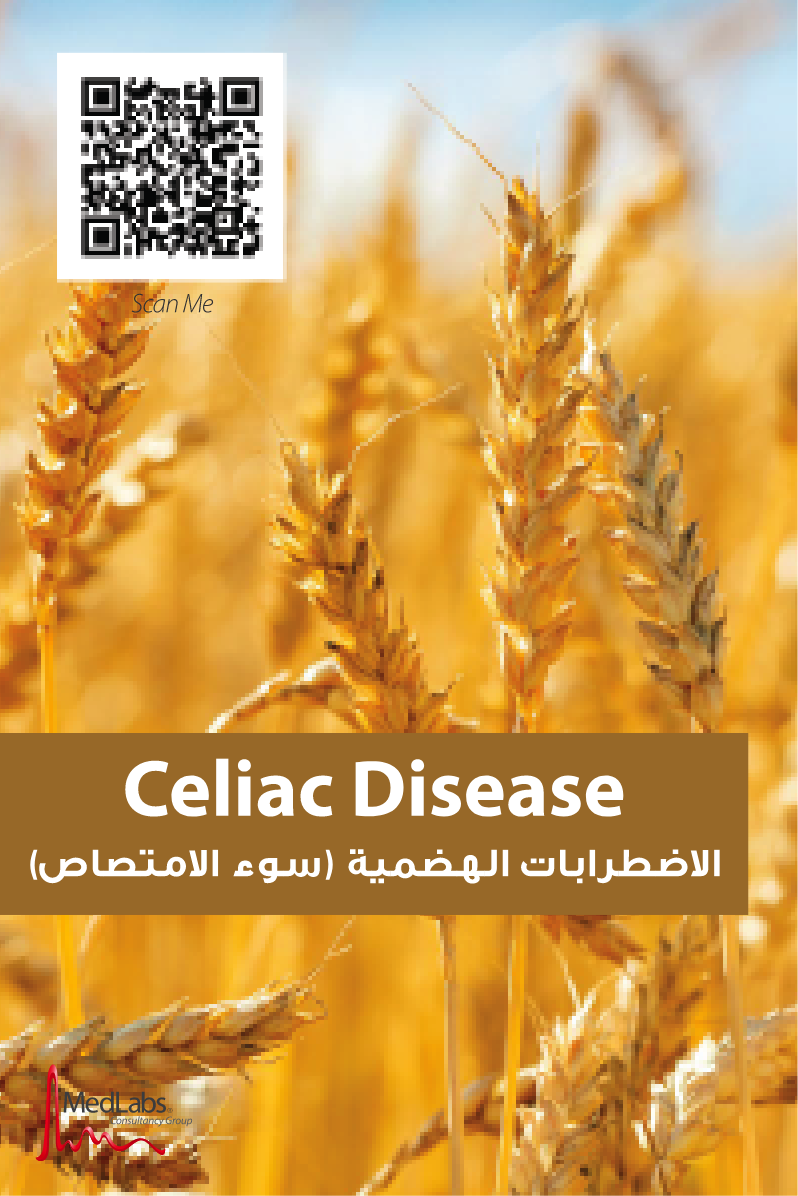
Celiac disease is a digestive disease that damages the small intestine and interferes with the absorption of nutrients from food. People suffering from Celiac disease can not tolerate a protein called gluten, which is found in wheat, barley and oat. Celiac disease is also considered a genetic disease, as it tends to run in families.
What are the symptoms?
Symptoms of Celiac disease may include any of the following:
- Abdominal bloating and pain, chronic diarrhea, weight loss, bone pain, fatigue, delayed growth, seizures, mouth sores, painful skin rash, missed period, anemia (iron deficiency).
Symptoms of Celiac disease can range from extreme physical disturbance to having no symptoms at all.
How is celiac disease diagnosed?
People with celiac disease have higher than normal levels of gluten antibodies in their blood. Blood samples are tested to measure levels of antibodies related to celiac disease, which include:
- Tissue transglutaminase antibodies
- Endomysial antibodies
- Gliadin antibodies
- Reticulin antibodies
What is the treatment for celiac disease?
The only treatment for celiac disease is to follow a gluten-free diet. This will stop symptoms, heal intestinal damage and prevent further damage. This diet is a lifetime requirement and entails avoiding foods that contain wheat, barley, and some oats. The diet is quite complicated, and may initially require the help of a specialized nutritionist.
Below is a list of foods that are allowed and those that should be avoided when following a gluten-free diet.
Recommended food:
- Replace Flour bread, cereals with products made from corn, rice, soy, or potato starch. Use Rice bran, cornmeal, millet sorghum.
- All fresh fruits or juices made from fresh fruits, fresh or canned vegetables.
- All milk products except those made with gluten additives and aged cheese.
- All meat, poultry, fish, shellfish, cold cuts, sausages and eggs.
Avoid
- Products containing wheat, barley, oats, wheat germ, bran, wheat starch, malt extract and crackers.
- Any creamy or breaded vegetables, canned baked beans.
- French fries
- Some commercial fruit pie fillings and dried fruit.
- Milk drinks with gluten additives, malted milk, flavored or frozen yoghurt.
- Any Prepared meat, poultry with wheat, oat, barley, gluten stabilizers.
- Some egg substitutes
- Sandwich spreads





